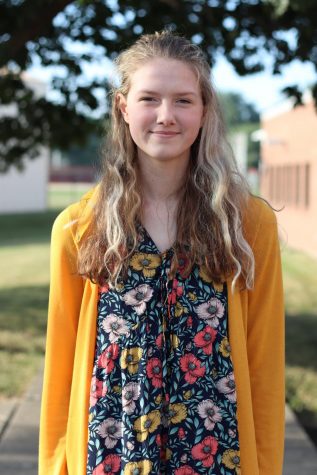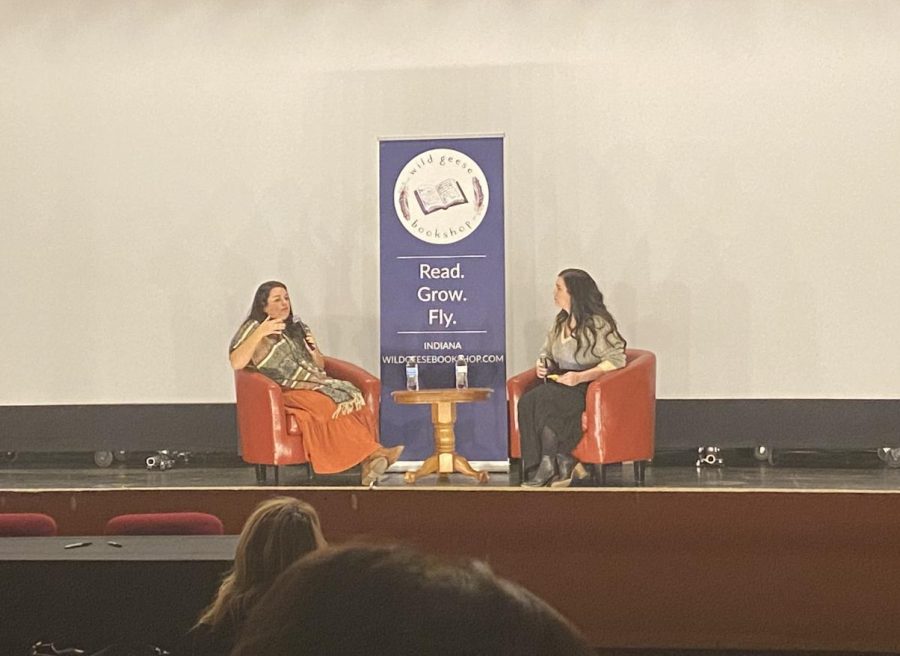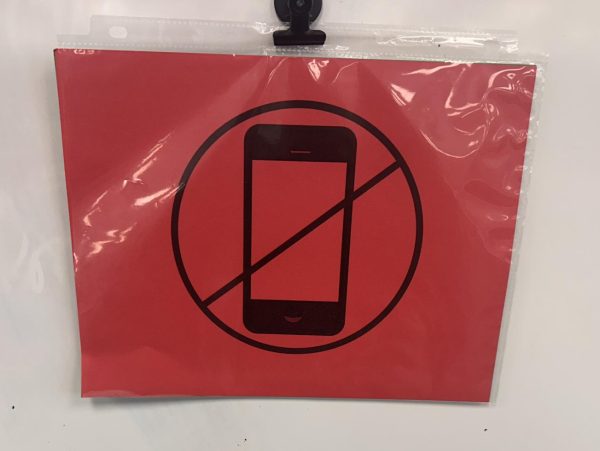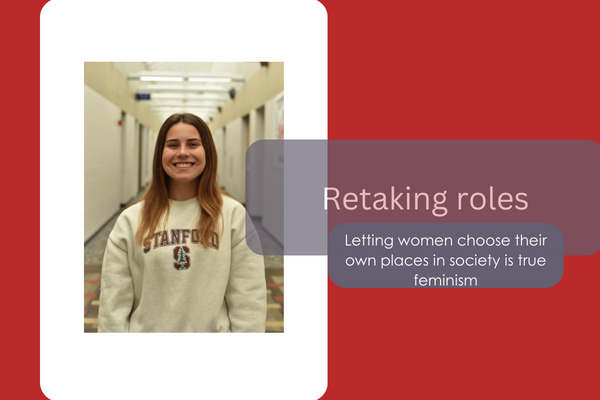An inspiring dynamic
Sopo Reads was among the audience at a book promotion and author Q&A at the Historic Artcraft Theatre
Authors Isabel Ibañez and Shelby Mahurin host an audience Q&A. They are promoting new books to book lovers at the event.
At the Historic Artcraft Theatre, popcorn and drinks are being served as books are bought from the small independent bookstore, Wild Geese Bookshop, that sponsors the authors. The audience, small and intimate, is waiting for the event, in which authors will come on stage for an interview and audience Q&A.
Authors Isabel Ibañez and Shelby Mahurin visited Franklin on Jan. 23 to promote Ibañez’s book, “Woven in Moonlight,” and sign books for fans and SHS’s book club, Sopo Reads, was among them.
Isabel Ibañez was born in Boca Raton, Florida, and had two Bolivian immigrants as her parents.
Shelby Mahurin grew up on a farm in Indiana, which helped her imagination sprout free at a young age.
Sopo Reads enjoyed the event and the intimacy that came with it. Some students even got the authors to sign their copies of In Cold Blood, which shows how much they enjoyed the authors and their dynamic.
“I liked how the dynamic was because the two authors interviewed each other which was different from other author events I’ve been to,” sophomore Audra Barclay said.
Mahurin was asking questions to Ibañez about the Bolivian food she ate growing up, to her father’s crazy adventures while living in the Amazon Rainforest and what her journey was like to become a published author and having the opportunity to design her own cover.
In Woven in Moonlight, the magic system gives the ability for the main character, Ximena, to weave moonlight from moon dust or rays.
“So when I was picturing Ximena, I knew she was this decoy, so she’s been defending all her life to be somebody else, but I also wanted to have sort of artistry, a passion, a hobby, something she could do on her own that felt completely herself,” Ibañez said.
Ibañez discussed the culture in Bolivia and how she weaved the culture into her novel to give it a whimsical sensation.
“I made sure the magic felt familiar, and it felt whimsical and recognizable too,” Ibañez said. “So for my cousins reading this, I think they’ll be able to see that kind of tradition and culture reflected there.”

Hi! Welcome to Chili’s or my bio whatever you prefer. My name is Shelby Reeves, I’m a senior and a News Reporter here on The Journal. When people first...












